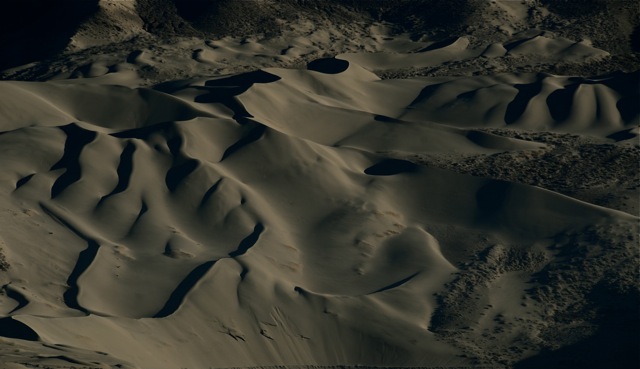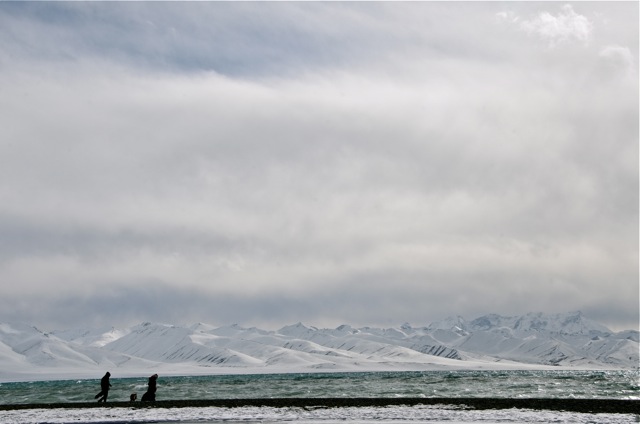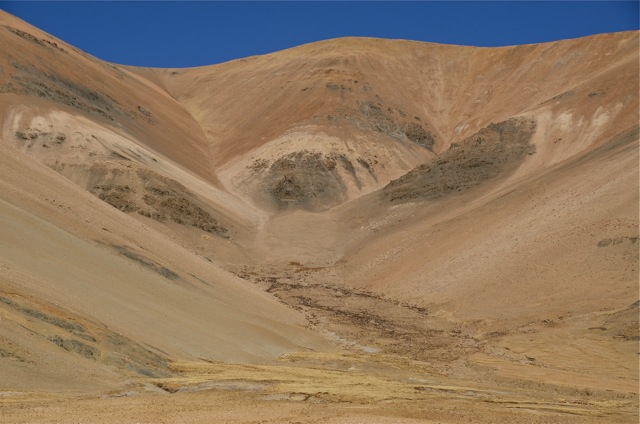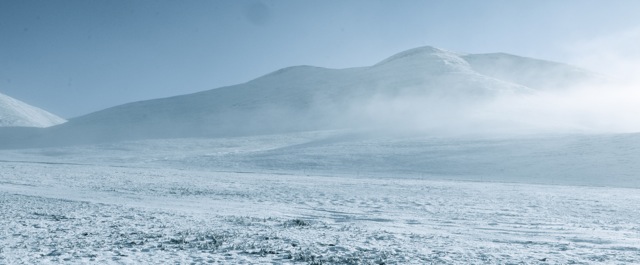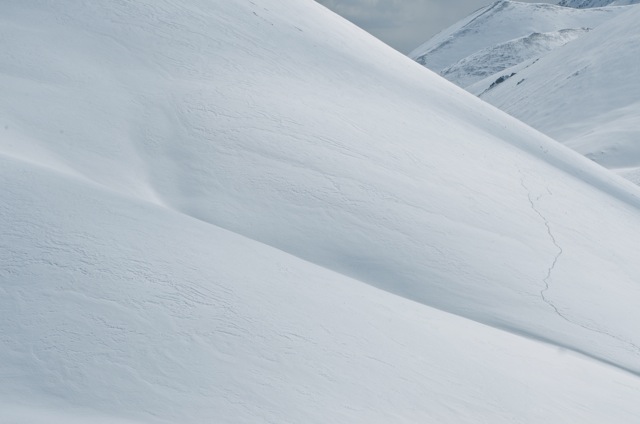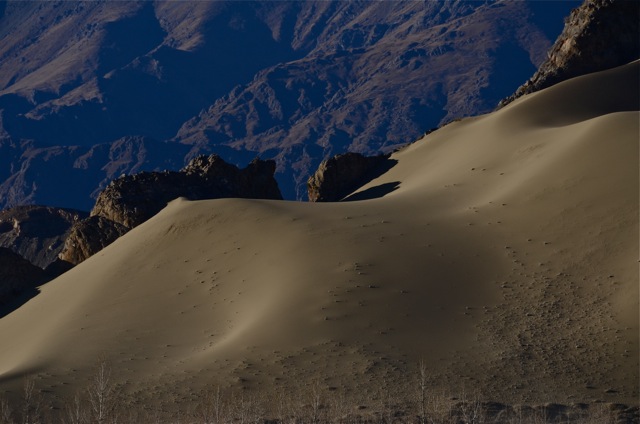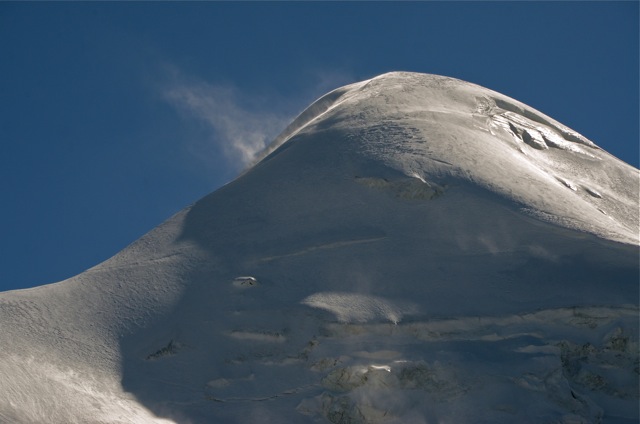Winter has set in marking the end of my own season within the Himalayas and Tibet. It is time for the grand silences and deep cold – that seep into and out of the earth – to bring their annual change to the earth. This year brought with it all of the mountain magic that it always does with additional reference points on the ancient trade routes that once passed through the Himalayas, the health of the heights, and a confirmation that what happens in the heights will inevitably soon find its way down.
The time within the mountains also emphasized however impregnable they remain, they also are changing at speed and suffering as temperatures rise, glaciers melt into the depths, and water becomes an even more tempestuous necessity and commodity. Sand dunes climb ever higher into the mountain valleys as silt and sand from dry river beds are blown and carried into the heights.
As always though, the overwhelming feeling and perhaps ‘lesson’ that I take with me is that beyond the risks and sheer daunting nature of the spires, snow passes, and isolation, the mountains offer up something of a sanctuary and silence. They nurture even while they are abused.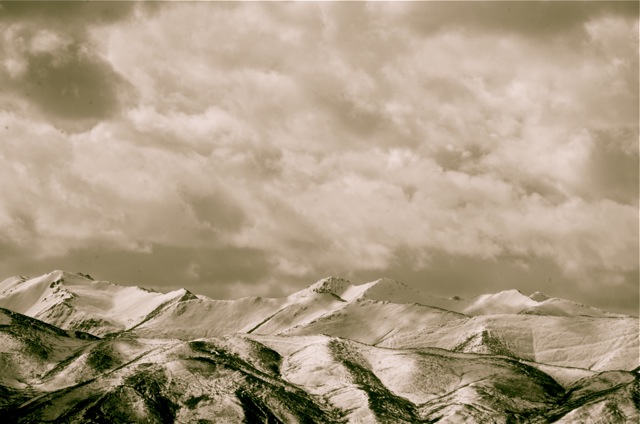
In a season that saw a Tibetan mastiff attack a friend leaving an inch-deep puncture in a leg, a blood oxygen level of another friend drop to half of what it should, the Himalayas did once again show an astonishing ability to soothe and remind of the sanctity of the elements.
Nam Tso lake in its magnificent sheen of power, and high-altitude waves that crash into the shoreline remain somehow pristine. The ever-flowing Tsangpo River which is the highest major river in the world, follows its ancient route etching its way through canyons and communities as it has for ages.
Black necked cranes wandered through the valleys as elegant and without fear as they are rare. Beyond the buffer that the Tibetan Plateau has offered up in ice and stone, the great glacial pieces have long been the providers of some of the most important waterways on the planet. They are the crucial feeds of the waterways.
I was also reminded of the wisdom that remains so present in the mountains when Tibetan friend Gonpo said one day “The mountains and rivers are the same. One end is always attached to the other end and you cannot touch part without touching the whole thing”. I would only add to that, that one cannot touch a part without being touched.
A trader (another of those gems of the times when things moved and were moved by foot rather than wheels) offered up another mountain law telling me “If you are lost, you must ‘follow the snow’. It too has a path” – this while looking at a white drape of snow lining the entire sky.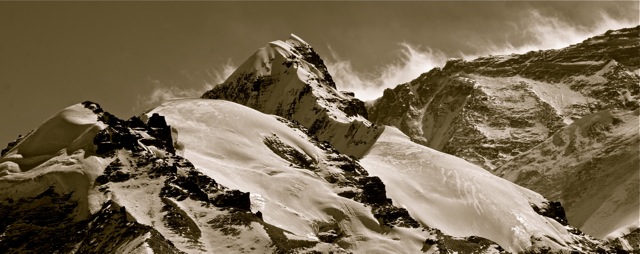
Chomolungma the great female deity that rises in stone higher than any piece of earth, (aka Mount Everest) sits broadly and mesmerizing in its intensity. But it also feels intensely calm and almost forlorn.
I often wonder what the mountains would wish for and what they might observe. Tibetans certainly think that they might slowly shake their heads at some of the shenanigans performed by their noisy little two legged neighbours. Or perhaps the mountains might simply remind us that beyond being wondrous widths of stone and ice, that they are also the harbingers of things to come.
In Tibetan there aren’t really words for good-bye but rather to “live long”, “go slowly”, “go well”… and so a year comes to an end ‘going slowly’. People, phases, time itself are all given a farewell but rarely a good-bye.


